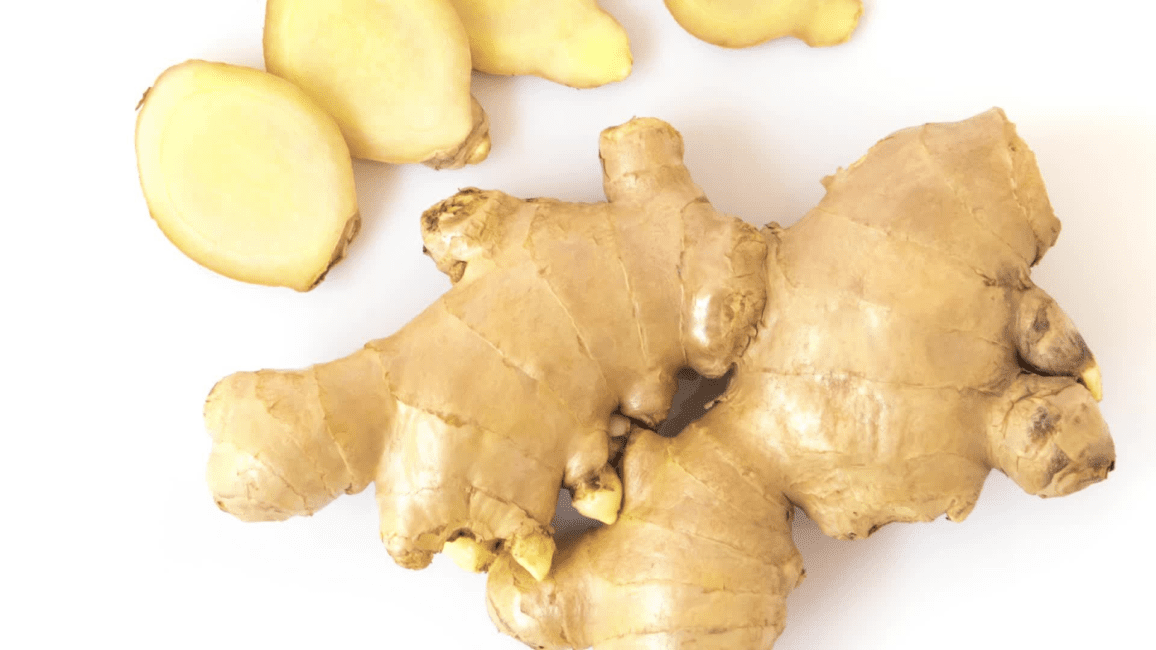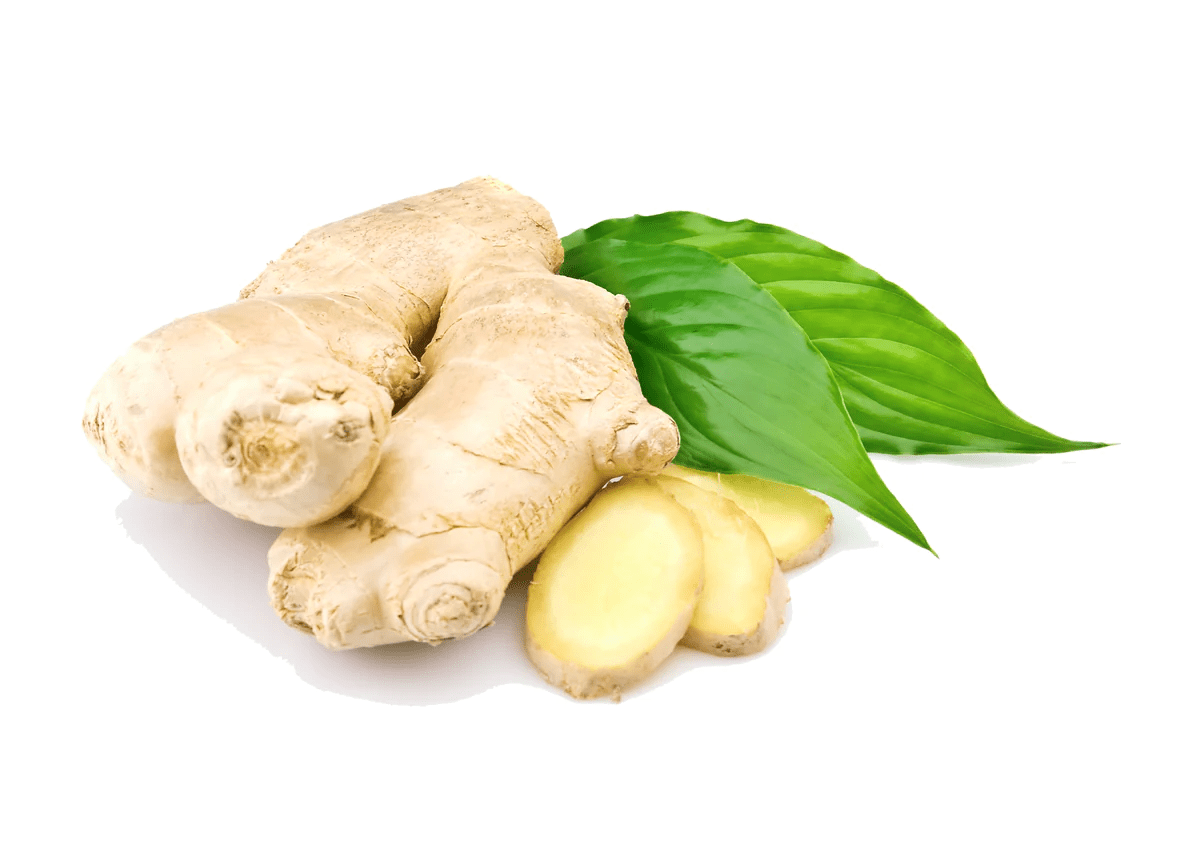Ginger botanically known as Zingiber officinale is a blooming plant linked to cardamom and turmeric. The ginger plant’s subterranean stem, or rhizome, sometimes goes by the name ginger root and is well-known for having therapeutic benefits.
Due to its therapeutic qualities, ginger has been utilized as a natural treatment for thousands of years. The usage of this spice to enhance general health and well-being has been recorded in ancient Chinese, Roman, Greek, Arabic, and Sanskrit manuscripts.
What applications of ginger are common? You can use ginger as a culinary spice, digestive aid, tea flavoring, or even as an essential oil. It is also available in fresh, ground, and capsule form.
When it comes to the plethora of advantages linked to ginger root, research is only beginning to scratch the surface. It is obvious that including ginger root in your diet could have a significant impact on health, from preventing infections to lowering cholesterol and promoting weight loss.
Read Also: 6 Health Benefits of Witch Hazel (Hamamelis virginiana)
9 Health Benefits Of Ginger roots (Zingiber officinale)

1. Antifungal
Yeast infections, jock itch, and athlete’s foot are just a few of the disorders that are brought on by fungi. Fortunately, ginger’s potent antifungal qualities help kill off the disease-causing fungus.
Ginger extract is effective against two forms of yeast that frequently cause fungal infections in the mouth in a 2016 test-tube study. Ginger was among the plants tested in a second test-tube investigation that evaluated the antifungal properties of 29 different plant species.
2. Protects You From Stomach Ulcer
According to several studies, ginger may be able to help prevent the development of stomach ulcers, which are uncomfortable sores that develop in the stomach lining and result in symptoms including indigestion, lethargy, heartburn, and abdominal pain.
A 2011 study on animals revealed that ginger powder warded off ulcers brought on by aspirin by lowering levels of inflammatory proteins and inhibiting the activity of enzymes linked to the formation of ulcers.
3. Ease Menstrual Pain
Unfortunately, for many women, the menstrual cycle is frequently accompanied by discomfort, cramps (dysmenorrhea), and headaches. While some people use over-the-counter drugs to manage their symptoms, natural remedies like ginger can also be effective at reducing menstruation discomfort.
According to research from the Journal of Alternative and Complementary Medicines, ginger is just as good at easing menstruation pain as medications like ibuprofen and mefenamic acid. Similar results from a 2009 trial showed that it reduced both the severity and duration of pain.
4. May Stop Cancer Growth
Due to the presence of a potent chemical called 6-gingerol, ginger has some of the most outstanding anti-cancer qualities. According to a 2018 study, ginger derivatives, whether they are isolated chemicals or an extract, have important antiproliferative, anticancer, anti-invasive, and anti-inflammatory properties.
According to research conducted in test tubes, the components of this spice may be useful in preventing the genesis and growth of cancer cells in cases of prostate, pancreatic, and ovarian cancer. To find out how well it can prevent cancer and whether it might apply to people, more research is required.
Read Also: 7 Health Benefits of Ginkgo Biloba (Salisburia adiantifolia)
5. Regulates Blood Sugar
According to research, ginger supports regular blood sugar levels. That means it might be useful for lowering the unpleasant symptoms of high blood sugar levels, such as increased thirst, frequent urination, and headaches (including migraines).
In a 2018 study, it was discovered that it can enhance lipid profiles, as well as help glucose regulation, insulin sensitivity, and glycosylated hemoglobin to prevent the onset of type 2 diabetes.
According to a 2015 study, taking ginger supplements improved long-term blood sugar control by 10% while lowering fasting blood sugar by 12%.
According to a 2021 mouse study, ginger also has anti-obesity benefits and may influence how adipocytes form (fat tissue). Ginger supplementation significantly decreased weight gain, hyperglycemia, hypercholesterolemia (high cholesterol), and hepatic steatosis (liver fat) in mice fed a high-fat diet without changing food consumption.
It’s thought to have this impact because of its capacity to combat the inflammation and oxidative stress that harm metabolic health. Including ginger in your diet may help alleviate both muscular pain and joint pain associated with arthritis, including osteoarthritis, because it can reduce inflammation.
According to one study, daily ingestion led to modest to significant decreases in muscle soreness brought on by exercise-induced muscle damage. In a different study, it was discovered that ginger extract reduced osteoarthritis patients’ knee discomfort and their need for painkillers.
6. Pain Reliever
Cholesterol plays numerous roles in hormone production and bile production, among other functions. However, high cholesterol levels can accumulate in the blood, leading to obstructions and raising your risk of heart disease.
One of ginger’s greatest advantages is its capacity to naturally cut triglycerides and cholesterol, which lowers your risk of developing heart issues.
In comparison to a placebo, ginger capsule supplementation was found to considerably lower harmful LDL cholesterol and raise good HDL cholesterol, according to a study from Iran’s Babol University of Medical Sciences.
Read Also: 5 Health Benefits of Saw Palmetto (Serenoa repens)
7. Support Brain Function
Oxidative stress and persistent inflammation in the brain have been related to neurodegenerative diseases including Alzheimer’s and Parkinson’s. Ginger is thought to play a significant part in the health of your brain due to its abundance of antioxidants and strong anti-inflammatory effects.
There is evidence from several animal studies that ginger extract may help prevent cognitive decline and aging of the brain. In addition, a 2012 study discovered that ginger extract benefited middle-aged women’s cognitive performance and attentiveness.
8. Antibacterial
In addition to having antifungal characteristics, ginger also boasts the capacity to combat bacterial diseases like pneumonia, bronchitis, and urinary tract infections.
One test-tube investigation indicated that the chemicals in this spice may help prevent the formation of specific bacterial strains that cause gum disease. Another test-tube investigation revealed that ginger extract was also efficient against various kinds of bacteria that were resistant to antibiotics.
9. Improves Digestive System
The potential of ginger to improve digestive health and ward off issues like dyspepsia, a frequent illness of disturbed digestion characterized by sensations like pain, heartburn, fullness, and discomfort, is one of its most potent advantages.
According to a study published in the World Journal of Gastroenterology, ginger aids in indigestion sufferers’ faster stomach emptying by 25% when compared to a placebo. In fact, according to one study, consuming ginger pills with food doubled how quickly the stomach empties.
Read Also: 6 Health Benefits of Peppercorns (Piper nigrum)
Read Also: Hydroponics Guide 101: All You Need to Know About it

